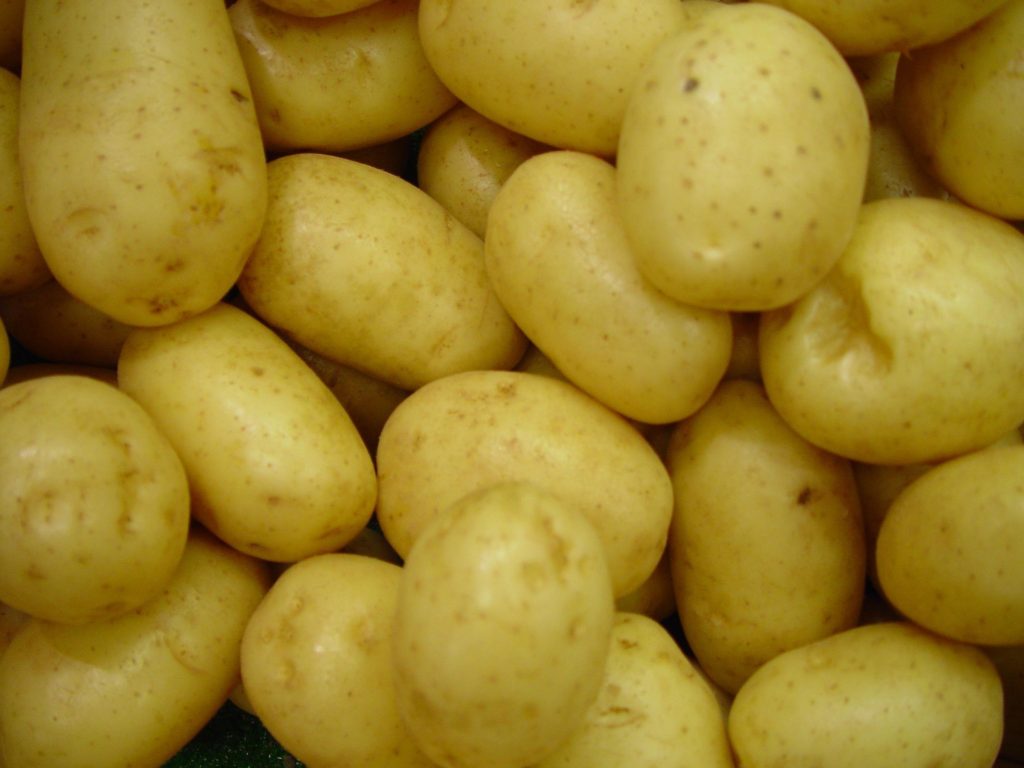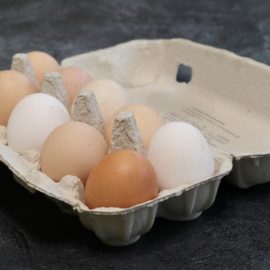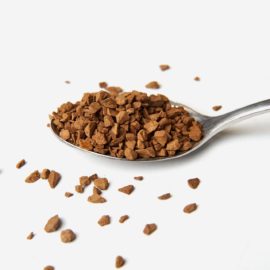
Ever experienced reaching into a sack of potatoes only to find them turning green? Undesirable right? Sure, you can definitely peel off the green parts, but the question is: are they safe to eat? There is no better way to answer this question than exploring how the discoloration happens.
So let’s dive right in.
Table of Contents
HOW POTATOES TURN GREEN
When storing potatoes, you would want them in a cool, dry place. A steady temperature of 45°F (7°C) to 55°F (13°C) will keep them in good quality for several months. With exposed to sunlight, several undesirable changes may happen. These changes include accelerated decomposition and sprouting. In a warm and bright place, potatoes would prepare to sprout as they see an opportunity to grow. When this happens, they would start to produce chlorophyll.
As we learned back in school, chlorophyll in plants is the compound responsible for absorbing light, sunlight specifically. Using photosynthesis, the energy absorbed is converted into carbon dioxide and water into glucose. Chlorophyll is also the green compound responsible for the green color of many fruits and vegetables, including potatoes stored while exposed to light. The change in color affects the peel and some of the flesh over time. Sure, chlorophyll is a harmless compound. But its levels in potatoes also indicate the levels of solanine that has formed.
WHAT IS SOLANINE?
Solanine is a glycoalkaloid poison naturally found in potatoes. It is found at moderate levels in the peels and sprouts, and leaves. However, potatoes increase the manufacture of solanine and other glycoalkaloids as a defense mechanism when exposed to sunlight. Other factors that increase glycoalkaloid production include improper storage conditions, improper food processing, and mechanical damage.
Solanine serves as a natural chemical defense. The synthesis of solanine and other glycoalkaloids increases when pests and other stressors are present. The increased level of solanine makes potatoes bitter. Normally, one would refrain from eating bitter potatoes. Or just remove the green part.
ARE GREEN POTATOES SAFE TO EAT?
Cutting out the green portion of a potato is fine. However, if the potato is extensively green and bitter, it is best to not consume it.
As earlier mentioned, green potatoes indicate the levels of solanine and other glycoalkaloids that have formed. Solanine is a neurotoxin. So one may fall ill after consuming of green potatoes. But toxicity levels vary. According to Institute of Agriculture and Natural Resources of the University of Nebraska, for a 200-pound man, the toxic level is roughly one hundredth of an ounce. To attain this level, a 200-lb person would need to consume almost 20 lbs of regular potatoes each day. Young people and individuals with weak immunity are more vulnerable to solanine poisoning.
You might also like: Why Soaking Potatoes In Water Is Important
Symptoms of solanine poisoning may include gastrointestinal and neurological discomforts. These include nausea, diarrhea, headache, vomiting, dizziness, joint inflammation and stomach cramps.There have been reported severe cases in which the patient experience symptoms like jaundice, hypothermia, hallucination, fever, paralysis, and even death.
The good news here is that solanine poisoning is very rare.
CAN SOLANINE AND OTHER GLYCOALKALOIDS BE REMOVED?
Potatoes in their early part of turning green are the best candidates for toxic compounds removal since the green parts can easily be cut out. If the potato taste bitter, it is best to discard them.
In general, cooking methods such as frying and baking does not decrease the levels of glycoakaloids significantly. Hence, they do not make green potatoes safer to eat. However, peeling the potato helps remove about 30% of the toxic compounds. But this does not automatically makes it safe to consume as the flesh still contain solanine.
But here is a Korean patent that describes how to eliminate solanine from potatoes effectively. The process involves immersing potatoes in vinegar (0.3 to 1.0 vol% acetic acid) at a temperature of 86°F (30°C) to 140°F (60°C) and then frying the potatoes.
So what exactly happens?
When solanine in the potato interacts with acetic acid in aqueous solution, solanine bonds to H+, acetic acid is in a CH 3 COO − state. At this point, acetic is deprived of protons (H+) and is in an ionic state. Since solanine bonds with H+, it becomes soluble in water and is easily released from the potato.
HOW TO PREVENT SOLANINE FORMATION?
The green color of potatoes itself is not harmful. But it is an indication of glycoalkaloids formation, particularly solanine. To prevent this, proper storage of potatoes is key. When storing potatoes, make sure light, temperature, and other considerations are in check.
You might also like: French Fries And The Science Behind
As earlier mentioned, a cool, dark place wherein there is a steady temperature of 45°F (7°C) to 55°F (13°C) is ideal. A place where there is exposure to light and warm temperature encourages chlorophyll to form. A place too cold either is not a good place to store potatoes. In fact, studies have shown that refrigerator temperatures allowed increased solanine levels in potatoes.


